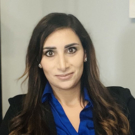Speakers
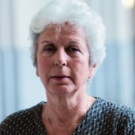
Marina Ottaway
Middle East Fellow
Wilson Center
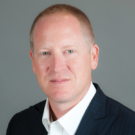
Geoff D. Porter
Founder and President
North Africa Risk Consulting
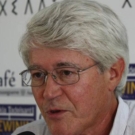
Hugh Roberts
Edward Keller Professor of North African and Middle Eastern History
Tufts University
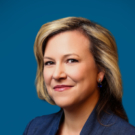
Sarah Yerkes
Senior Fellow, Middle East Program
Carnegie Endowment for International Peace
Moderator
Event Summary
On April 4, 2019, Arab Center Washington DC (ACW) hosted a panel discussion at the National Press Club titled “Algeria’s Protests and the Prospects for Change.” It featured four experts on Algeria: Marina Ottaway, Middle East fellow at the Wilson Center; Geoff D. Porter, founder and president of North Africa Risk Consulting; Hugh Roberts, Edward Keller Professor of North African and Middle Eastern History at Tufts University; and Sarah Yerkes, a fellow in Carnegie’s Middle East Program. ACW Executive Director Khalil Jahshan offered introductory remarks, and ACW Assistant Executive Director and Senior Fellow Tamara Kharroub moderated the session and offered an overview of the current situation in Algeria, emphasizing its fluidity. She asked, is this the change the Algerian people were seeking? What are the prospects for democratic transition in the country?
Hugh Roberts described the demonstrations as extraordinary, peaceful, and dignified. He said that the Algerian civilian class had aligned with the demands of the popular movement; this includes important sectors like the veterans’ association and various professional organizations such as those of judges and teachers. Algerians, he asserted, consider the regime parties as largely discredited and the entire system—and not just President Abdelaziz Bouteflika—as the problem. He suggested that the former Algerian president (1994-1999), Liamine Zéroual, who is viewed as honorable and patriotic, could step in and legitimate the election for a new president. Roberts pointed to the economic drivers of the revolution, especially the high unemployment of youth, and the serious problems of crony capitalism in the echelons of power.
Marina Ottaway asked, what will it take for the protesters to force the political transition? How can they organize to become a potent political force, and can they do so without provoking the military to intervene? She employed the recent case of Tunisia’s trajectory toward democratization to shed light on current events in Algeria, and perhaps even provide a model for the Algerian transition. The result in Tunisia was the creation of committees—which were facilitated by President Beji Caid Essebsi and based on the Tunisian constitution—that implemented the people’s demands for democracy. The committees formulated the rules of transition and the formation of a constitutional assembly and an independent commission which included diverse voices. Ottaway noted that an important factor was that Tunisia did not have to deal with the possibility of military intervention.
Sarah Yerkes asserted that what happens in Algeria influences the entire region. Morocco has announced no official response to the Algerian protests and said it would not meddle nor comment on them. She said that King Mohammed VI is watching the events in Algeria carefully; he is the only North African leader left standing since the onset of the Arab Spring and undoubtedly wonders if he will be next to fall. The Moroccan people, she noted, are supporting their Algerian counterparts strongly. There is a similar mix of fear and optimism in Tunisia as well, Yerkes continued. Tunisia’s shared border with Algeria contains hideouts for terrorists, and this is an issue that concerns the government in Tunis, especially if the Algerian state and security services are weakened as a result of the protests. The Tunisian people have had solidarity protests and are pleased to see the revolution reignited, Yerkes said. Cairo, for its part, is advising the Algerians to be cautious, in light of the tumultuous Egyptian experience since 2011. Indeed, she said, the takeaways for Arab leaders include listening to the people’s demands and, at the same time, considering different ways to respond to protests.
Geoff Porter posited an analytical framework for thinking about the political changes in Algeria, one founded on four tensions or contestations: the roles of the past, the military, the constitution, and consensus. He said that Algeria’s history, especially its revolution against the French and the war of independence, plays a role in the current struggle for legitimacy; Porter asked, who has the right to pick up the mantle of the revolution: the government or the popular hirak (movement)? As for the role of the military, which is hailed as a pillar of the state, there is both an embrace of it as well as an inherent anxiety, with questions about the role of the military as a guarantor of political stability yet concerns about its potential to overstep its power. While many suggested tearing up the constitution and replacing it with a new rule of law due to questions regarding the legality of constitutional authority for the political transition in the country, Porter asked whether it would be a good idea to do away with the rule of law. Finally, the emphasis of the Algerian government on consensus, Porter noted, has actually hamstrung the government as well as the hirak, rendering them unable to decide clearly what their demands are. He asked, will they continue to privilege consensus?
Event Photos

